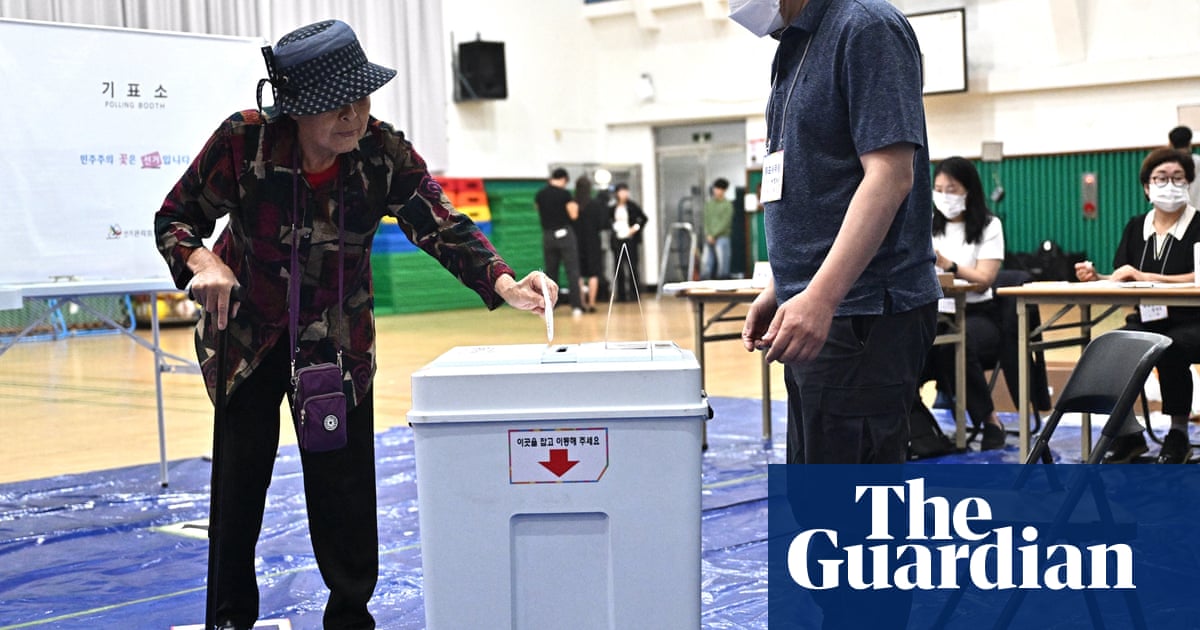Millions of South Koreans are voting for a new president in asnap electiontriggered by theimpeachmentof Yoon Suk Yeol, a conservative who now faces an explosive trial on rebellion charges over his short-lived imposition of martial law in December.
Pre-election surveys suggested Yoon’s liberal arch-rival,Lee Jae-myung, appeared headed for an easy win, riding on deep public frustration over the conservatives in the wake of Yoon’s martial law debacle.
The main conservative candidate,Kim Moon Soo, has struggled to win over moderate, swing voters as his People Power Party remains in a quagmire of internal feuding over how to view Yoon’s actions.
The election serves as another defining moment in the country’s resilient democracy, but observers worry a domestic divide worsened by Yoon is far from over and could pose a big political burden on the new president.
The past six months saw large crowds of people rallying in the streets to eitherdenounceor support Yoon, while a leadership vacuum caused by Yoon’s impeachment and ensuing formal dismissal rattled the country’s high-level diplomatic activities and financial markets.
The winning candidate will immediately be sworn in as president Wednesday for a single, full term of five years without the typical two-month transition period. The new president will face major challenges including a slowing economy, President Donald Trump’s America-first policies and North Korea’s evolving nuclear threats.
The election commission says voting began at 6am at 14,295 polling stations nationwide that will close at 8pm. Observers say the winner could emerge as early as midnight.
More than 15 million people already have cast ballots during a two-day early voting period last week, accounting for nearly 35% of the country’s 44.4 million eligible voters.
In his final campaign speeches Monday, Lee promised to revitalise the economy, reduce inequality and ease national divisions. He urged the people to vote for him, arguing that a win by Kim would allow Yoon’s “rebellion forces” to return.
“If they somehow win, that would mean the return of the rebellion forces, the destruction of democracy, the deprival of people’s human rights, the normalisation of martial law and our country’s downfall into a backward, third-world nation,” Lee told the crowd gathered at a Seoul park.
Kim, a former labor minister under Yoon, warned that a Lee win would allow him to wield excessive power, launch political retaliation against opponents and legislate laws to protect him from various legal troubles, as his party already controls parliament.
Lee “is now trying to seize all power inSouth Koreaand establish a Hitler-like dictatorship,” Kim told a rally in the south-eastern city of Busan.
Lee, who led the opposition-led campaign to oust Yoon, has been a highly divisive figure in South Korean politics for years. He faces multiple criminal trials, including charges of bribery and alleged involvement in a property development scandal, with South Korea’s supreme court recently ordering a retrial of an election violation case after overturning his acquittal, with instructions for conviction.
Courts have agreed to postpone further hearings of ongoing trials until after the election, allowing him to contest the presidency while the cases remain unresolved. Lee denies all charges, describing them as politically motivated persecution.
Should he win though, legal questions remain over whether presidential immunity would halt his ongoing prosecutions, as opposed to simply preventing new charges, potentially setting up another constitutional crisis.
As a former child labourer known for his inspirational rags-to-riches story, Lee came to fame through biting criticism of the country’s conservative establishment and calls to build a more assertive South Korea in foreign policy. That rhetoric has given him an image as someone who can institute sweeping reforms and fix the country’s deep-seated economic inequality and corruption.
His critics view him as a dangerous populist who relies on a political division and backpedals on promises too easily.
On foreign policy, Lee has not made any contentious remarks recently and has steadfastly vowed to pursue pragmatic diplomacy. He has called South Korea’s alliance with the US the foundation of its foreign policy and promised to solidify a trilateral Seoul-Washington-Tokyo partnership, a stance that is not much different than the position held by South Korea’s conservatives.
Experts say there aren’t many diplomatic options for South Korea as it tries to address Trump’s tariff hikes and calls for South Korea to pay more for the cost of the US military presence, as well as North Korea’s headlong pursuit of nuclear weapons. Experts say that has made both Lee and Kim avoid unveiling ambitious foreign policy goals.
